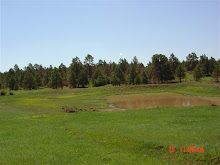Fracking not a cleaner alternative: Cornell prof
(Reuters) - Natural gas obtained by the controversial technique of hydraulic fracturing may contribute significantly to greenhouse gas emissions and so should not be considered as a cleaner alternative to coal or oil, according to a Cornell University researcher.
Although natural gas, when burned, produces only about half of the carbon dioxide emissions of coal, that calculation omits greenhouse gas emissions from the well-drilling, water-trucking, pipeline-laying, and forest-felling that are part of the production of hydraulically fractured natural gas, Ecology Professor Robert Howarth argues in a new paper.
Combining the effects of combustion, production, distribution, and leaked methane from hydraulically fractured natural gas gives the fuel about the same greenhouse gas emissions as coal and about 30 percent more than diesel or gasoline, Howarth says in the draft paper published in mid-March.
"A complete consideration of all emissions from using natural gas seems likely to make natural gas far less attractive than other fossil fuels in terms of the consequences for global warming," Howarth writes.
Energy companies are scrambling to develop vast reserves of natural gas from deep shale beds in many U.S. states including Texas, Louisiana, and Pennsylvania. Experts say shale gas could meet national demand for a century while helping to reduce carbon emissions and reducing petroleum imports.
"Government and industry should not be moving ahead on the basis of what is already misleading and incomplete information," Howarth told Reuters. He urged a moratorium on further development in the multibillion-dollar industry until more is known about its greenhouse gas emissions.
The damaging nature of gas from fracturing, or "fracking", undermines claims that it is a "transition" fuel between carbon-intensive sources like coal, and renewables such as solar and wind, Howarth said in the paper.
Citing preliminary data, Howarth estimates total greenhouse gas emissions from hydraulically fractured natural gas may be equivalent to 33 carbon grams of CO2, slightly more than 31.9 grams for coal, and well above the 20.3 grams for diesel or gasoline.
The data are partly based on methane leakage of 1.5 percent of natural gas consumed, a figure assumed by the federal government. More>>>






0 comments:
Post a Comment